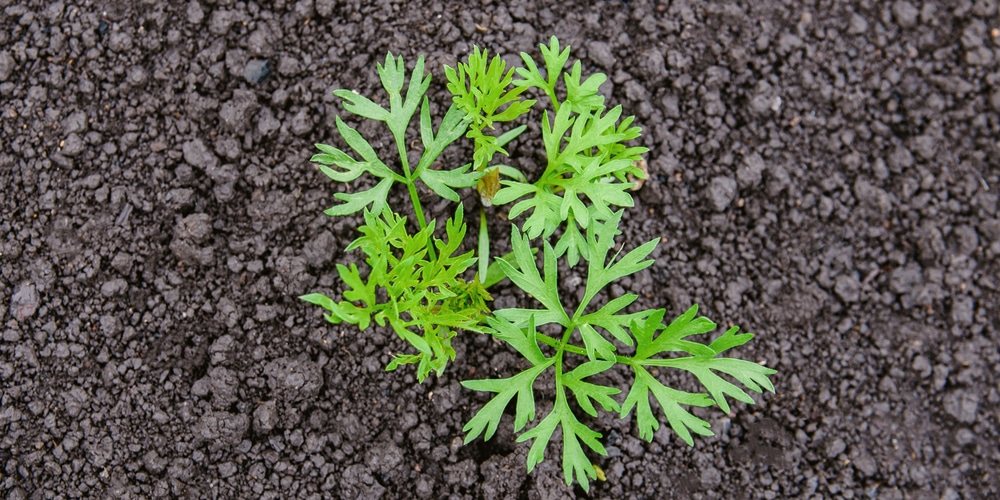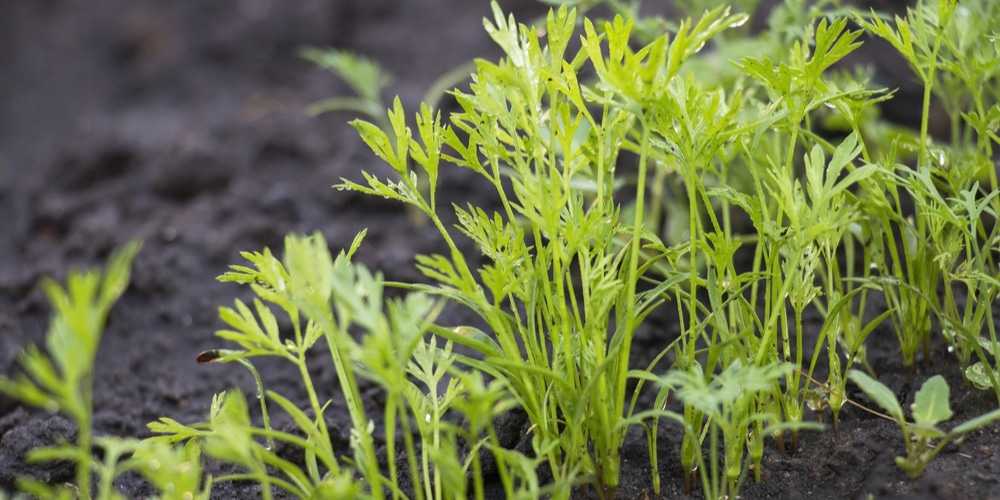Carrots are cool-season crops that grow as biennial plants that most gardeners harvest in their first year (before they overwinter). As with most vegetables, home-grown carrots have a much better taste than those you buy at the supermarket. So, don’t think twice about growing them if you love to eat these bright-looking veggies! You may be wondering, ‘how long does it take for carrots to sprout.’
And if you are planning to grow carrots, you must be familiar with how long they take to germinate. Doing so will allow you to organize yourself better and know what to expect with these crops.
How Long Does It Take For Carrots to Sprout?
Let’s go straight to the core of the question. Under ideal conditions, carrots might take as little as six days to germinate. However, they take about 14-21 days on average.
Of course, the time to germination depends on several factors, including soil and weather conditions. For instance, it usually takes longer at temperatures below 40°F. In those conditions, sprouting might occur (if it occurs) in as long as 50 days.
You can speed up the process by paying attention to the temperature, humidity, and air circulation you expose your seeds. For instance, carrot seeds will do much better when the soil temperatures are between 65 and 85°F. And while you cannot control those, you can place a humidity dome around the seeds. Doing so will recreate the ideal conditions for the development of seedlings.
Your carrots might fail to germinate if the soil isn’t of suitable quality if you don’t keep them moist or plant them too deep. You’ll learn more about the ideal conditions for sprouting in the following section. But if you want to know more about placing your carrot seeds in the soil, here are some tips.
Cover them with half an inch of soil at most to allow them to poop out of the surface early enough to sprout. Also, it will expose your seeds to adequate lighting, which will maximize the chances of germination.
What Are The Ideal Conditions for Sprouting?
Carrots thrive in sandy, loamy, loose, and well-draining soils. Recreate the ideal conditions for their growth to get satisfactory results. So, before you sow the seeds, ensure you remove debris, rocks, and pieces of plant materials. Indeed, they might shield moisture and nutrients from getting to your carrots.
You must plant your seeds directly on the soil to avoid issues resulting from transplantation. Carrots tend not to do very well when you move them around.
For best results, check your local weather conditions. Ideally, sow carrot seeds about 2 to 3 weeks before the last frost in the spring. Consider covering the ground with black plastic after sowing if you live in a cold area. Doing so will insulate them from low temperatures and prevent them from suffering the cold.
Carrots will need plenty of moisture to germinate. So, water them frequently to keep them moist and speed up the process.
Don’t forget to use new carrot seeds to increase your chances of getting healthy crops. Ditch the old ones, which may never germinate, regardless of how well you care for them.
Can You Speed Up The Germination Process?
Besides planting your carrots under the ideal conditions, one of the best ways to boost germination is to soak the seeds. Indeed, sprouting might take longer due to the hard coating that protects them from damage.
And since they will only germinate when they absorb enough water to get the energy to undergo plant cell duplication, allowing them to “rest” in a liquid (a process that is known as “priming”) can help them do so faster.
Soak your seeds in cold water overnight, or let them stay there for up to 24 hours to maximize germination speed. Don’t forget to sow them directly after priming to get the best results out of the process.
Additionally, you should keep the soil moist (but avoid overwatering) to encourage the seeds to develop strong roots and, therefore, better establish themselves in the ground. Avoid planting your carrots on a compact substrate.
So, if you suspect they won’t get enough airflow, consider aerating the soil before sowing your carrot seeds. Doing so will allow your carrots to root and access all the nutrients and moisture they need to thrive (and thus, germinate).


